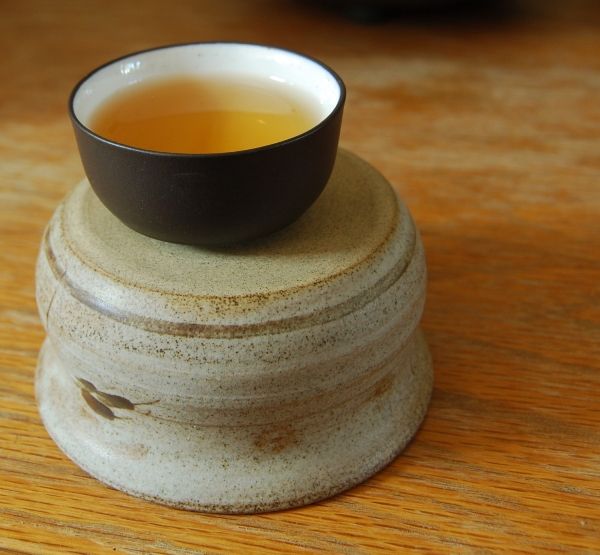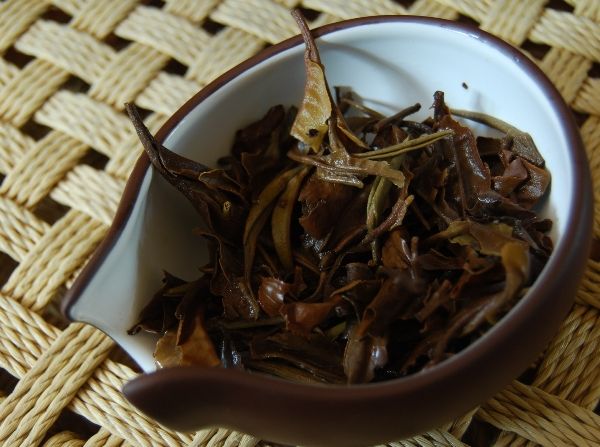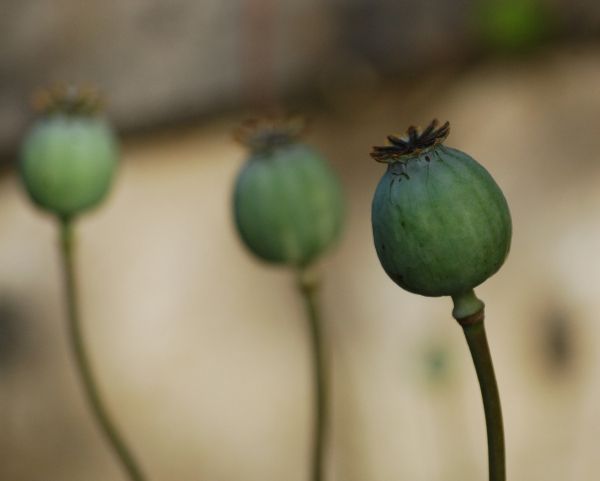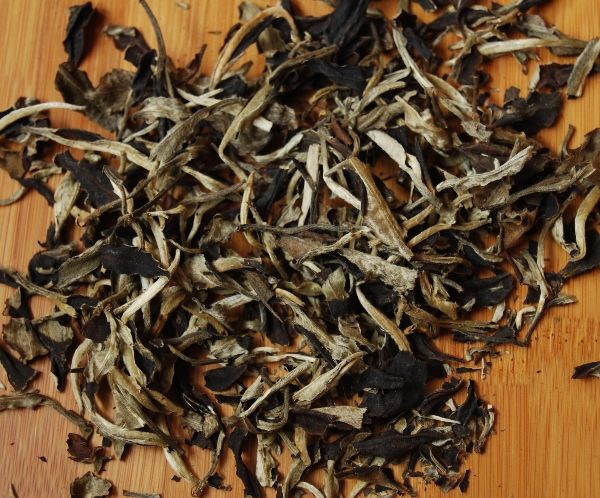Sometimes, things just aren't what they're supposed to be.
These poppy pods, for example, are supposed to grow up into lovely poppies. If we score the skins of the pods, however, we can extract a latex fluid and obtain opium.
These poppy pods, for example, are supposed to grow up into lovely poppies. If we score the skins of the pods, however, we can extract a latex fluid and obtain opium.
Similarly, an old tree should be giving great maocha. If I had access to such leaves, I'd be making some interesting cakes - assuming that the leaves result in palatable tea. Most people will tell you that leaves from completely wild pu'er trees are unconsumable, being far too bitter, and that complex "old tree" pu'er typically comes from feral trees that originate in ancient tea-farms.
This maocha, kindly provided by KC/sp1key (thanks once again!) is a yinhao [silver-bud] tea. My prior assumption is that the tea will be creamy, courtesy of the tippy leaves, but also rather constant.
This maocha, kindly provided by KC/sp1key (thanks once again!) is a yinhao [silver-bud] tea. My prior assumption is that the tea will be creamy, courtesy of the tippy leaves, but also rather constant.
The blend is two-tone, as you can see. It is divided almost 50-50 between tips and very dark basis leaves.

The aroma is very quiet, just like yinhao. The brew turns out to be gentle, sweet, and creamy as one might expect. It is very clean, and very delicate. It soldiers on, giving creamy, sweet brews as long as you can to infuse the leaves.

The wet leaves reveal that the dark leaves are immensely brittle and dark red, having been heavily oxidised prior to cooking. The blend tastes as one might expect given the above photograph: husky hongcha with sweet creaminess atop it.
I'm very grateful to KC for the opportunity to try this maocha. Even though it's not really my cup of tea, and I haven't yet encountered a yinhao that really captivates me, I take great delight in trying teas across the full spectrum.
I'm very grateful to KC for the opportunity to try this maocha. Even though it's not really my cup of tea, and I haven't yet encountered a yinhao that really captivates me, I take great delight in trying teas across the full spectrum.



Hobbes,
ReplyDeleteGreat post as always. I always enjoy reading your writing.
Looks like some sort of white tea, Iremember seeing something similar in kg bags in a Chinese supermarket in manchster a while back.
ReplyDelete-vl.
Dear Nick,
ReplyDeleteToo kind, but thanks for the vote of confidence - it's always good to hear from new readers!
Dear Vlad,
You're right, it is reminiscent of white tea in its appearance. The tippy character of both is comparable, too. I hope all is well at university - isn't this your final year? :)
Toodlepip,
Hobbes
Well some white tea can be very oolongly and a bit like sort of more fermented pu-erh, especially the bulk-packed varieties I was talking about. Quite nice to drink though.
ReplyDeleteI'm good. Spending the year doing a one year taught course in mathematical logic, in manchester. Set theory, category theory, model theory... those sorts of things.
-vl.
Wo there, you're getting dangerously close to my neck of the mathematical woods!
ReplyDeleteThose Silver Tips Puerhs make for some pretty good teas. That's what I love about Puerh: there's almost as much range among them as in the entire rest of the tea world. --Teaternity
ReplyDelete